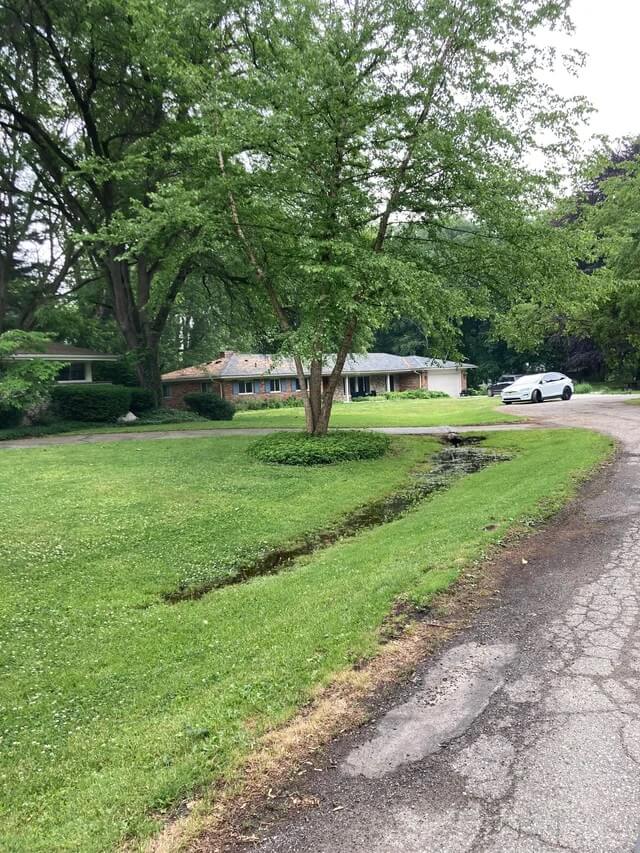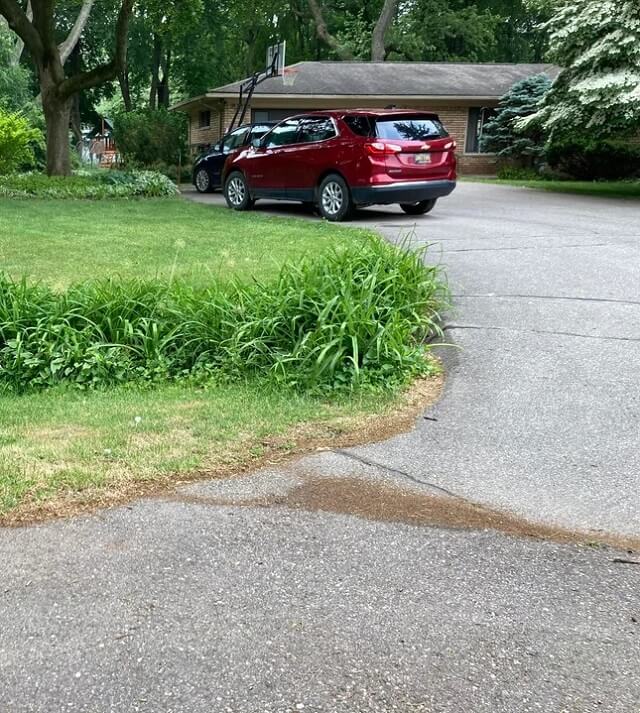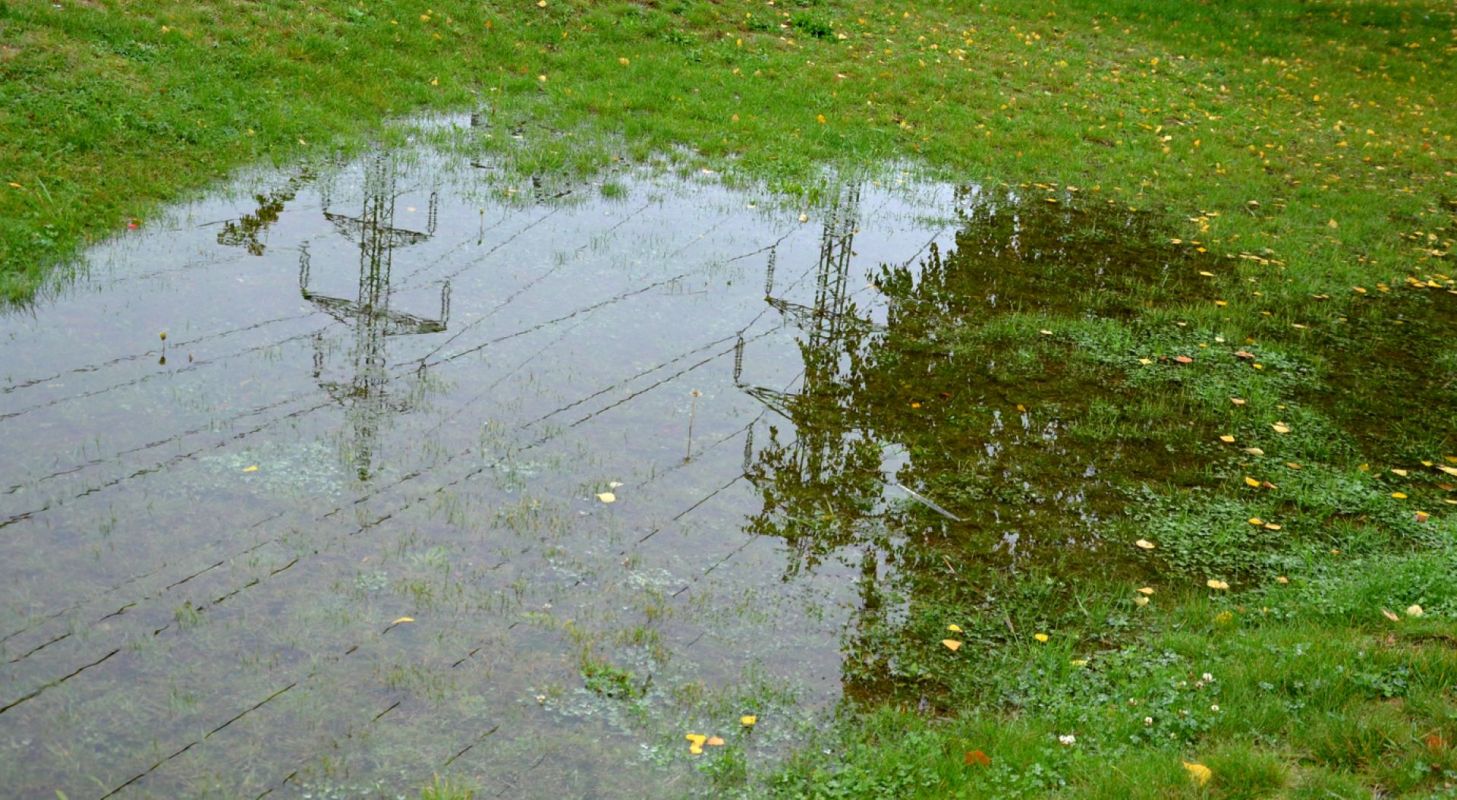One homeowner recently took to the r/NativePlantGardening subreddit to solicit some advice about what to do with the huge puddle of standing water that had taken up residence in their yard.


"One neighbor, which I pictured, appears to have built a rain garden near the ditch. Some sources say not to build [a] rain garden where water pools? I'd like to plant some native Michigan plants and solve the issue of this eyesore as well as improve my yard's ecology. Any advice is appreciated," the poster wrote.
Rain gardens are an increasingly popular landscaping trend that seeks to work with the environment instead of fighting against it. They feature plants that can handle lots of water and work best in areas that get heavy rainfall.
However, as the original poster pointed out, they are best suited to places where the water drains away quickly and not to places where standing water pools for long periods of time.
"It may seem like a good idea to turn an area that is frequently wet or where water pools into a rain garden, but that actually is not the case, according to the National Wildlife Federation," wrote the Forest Preserve District of Will County. "Those are signs that an area has poor drainage, which means it's not a good spot for a rain garden. Instead, a mostly flat or gently sloping space in your yard is best."
"That's a drainage ditch. It is some government entities interest to keep it flowing. Anything you do can be ripped out," wrote one commenter on the Reddit thread.
However, other Redditors advised the poster to just go for it and see what happens.
🗣️ What's the worst thing about taking care of your yard?
🔘 The time it takes ⏰
🔘 How noisy it is 🙉
🔘 It's too expensive 💸
🔘 I don't have a yard 🤷🏾♀️
🗳️ Click your choice to see results and speak your mind
"Reach out to your local extension office and your local water department; lots of water departments and other govt orgs will even give you free starter plants to plant rain gardens," wrote one.
"If I had a place like this, I would use all the beautiful native plants to design a rain garden," wrote another.
Regardless of whether or not a rain garden will work in this instance, native plant gardening is a great alternative to a traditional grass lawn. Unlike uniform grass lawns, which discourage biodiversity and require excessive watering, maintenance, and polluting yard equipment, native plant gardens encourage biodiversity while requiring less maintenance and also being more visually appealing.
Join our free newsletter for easy tips to save more, waste less, and help yourself while helping the planet.









